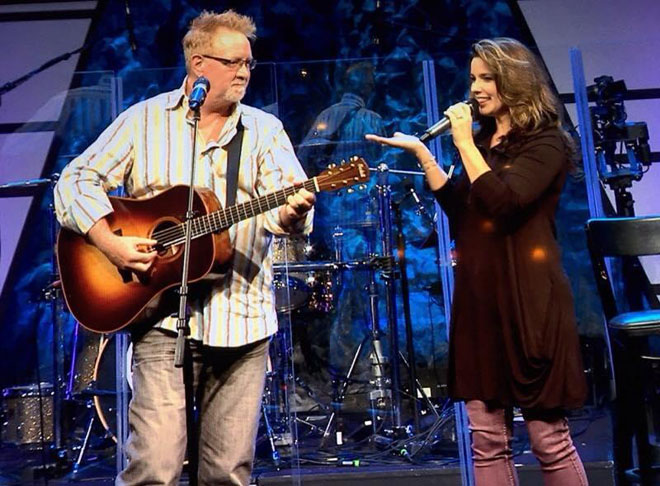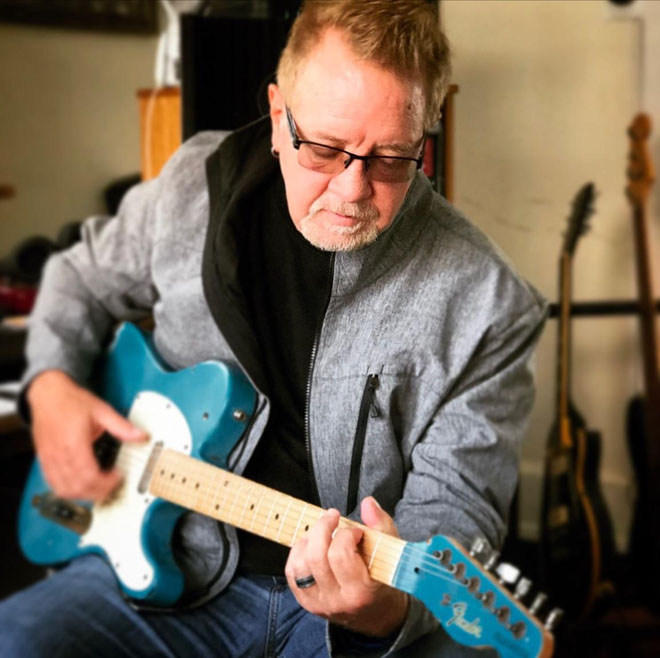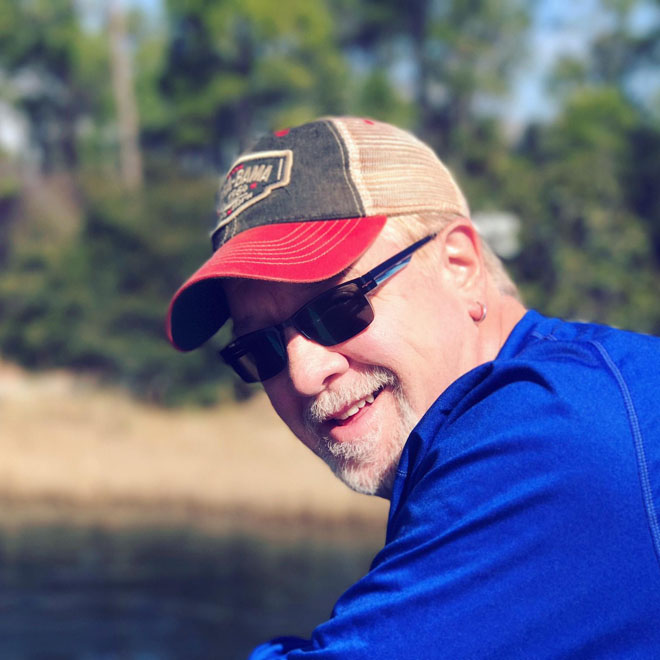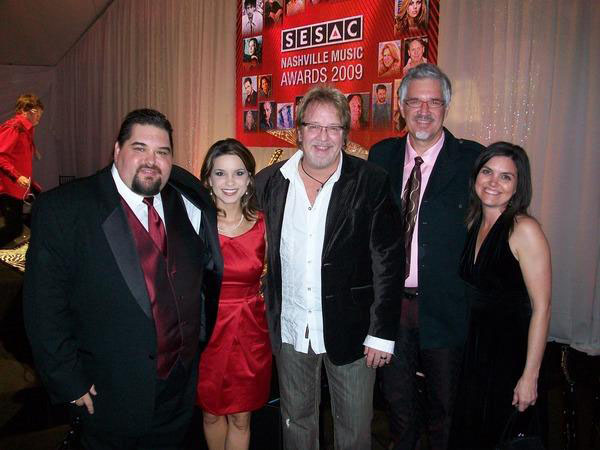
VIDEO FEATURE & WEB-EXCLUSIVE INTERVIEW
Songwriter: BRIAN WHITE
Musician: RODNEY ATKINS
Video: “Watching You”
Brian White is a passionate songwriter. As a writer his songs have earned him 14 Number 1 songs, two Dove Awards for Song of the Year (Michael English & The Martins), SESAC Country Song of the Year & Billboard’s Most Played Song of the Year (Rodney Atkins’ “Watching You”), as well as ACM and CMA nominations. Recently “Watching You” was listed at #37 in Billboard magazine’s “100 Greatest Country Songs of All Time” and topped the charts as “The Most Played Country Song of the Decade.”
With over 300 cuts to his credit, White is a featured clinician at songwriting seminars. He has experienced success in the Country and Pop market with his songs recorded by Rascal Flatts, Trace Adkins, Jason Aldean, Gary Allan, Rodney Atkins, The Swon Brothers, Steve Holy, Earl Scruggs, Terri Clark, Kix Brooks, Blackhawk, Canadian Country stars Chad Brownlee, Tim Hicks, Brett Kissel, The Lovelocks, Livy Jeanne, Russian Pop star Avraam Russo, and international icon Cliff Richard.
White’s songs have also been recorded by Christian artists as Danny Gokey, Kutless, 7eventh Time Down, Avalon, Point of Grace, Mandisa, 4Him, Larnelle Harris, Karyn Williams, Selah, All Star United, 33 Miles, Pure NRG, and Jaci Velasquez. As a touring artist signed with a major record deal, he fronted the Christian rock band “Brian White & Justice” for 15 years, recording five projects.
We talked with Brian White about his songwriting, creative inspiration, and his upcoming performance at Greg Friia’s Songwriters Singing for Coffee—where you get a chance to see this amazing songwriter up close and personal, along with Pete Sallis, Will Nance, Carly Tefft at the Green Hills Starbucks, 3706 Hillsboro Pike, Nashville, TN. It’s a show you won’t want to miss—this Monday, September 25, 2017, at 7:30 PM.

BRIAN WHITE Web-Exclusive Interview
with M Music & Musicians magazine publisher, Merlin David
What’s the most satisfying aspect of being a songwriter?
I feel like this is what I was created to do. To write something that falls into a three minute time span that can touch people right where they are—from my little room in Nashville—is a crazy thought. Then to have people email or come up to me after a show and tell me how a song impacted them—is a humbling and rewarding thing. To think that someone who I never knew, across the miles, was moved by what I helped create is pretty amazing.
What made you want to write songs?
I have always loved music, and it played such an important role in my high school and college years. It was about that time that I felt like I had a voice and something to say. So I picked up the guitar. I loved singer-songwriter artists, and the writing process was a way to take my thoughts and give them a platform. Once other artists wanted to record my songs, I was totally hooked. It is such an honor to have them stand in front of their audience every night, and share my words and melodies.
Were you always into music?
I played baseball in high school, but I loved music. I got talked into auditioning for the play The Sound of Music. I didn’t want to tell the guys in the baseball team that I was doing a play. But the truth was—there were cute girls in the play, and I landed a part as one of the von Trapp kids. For the song “Edelweiss,” they wanted me to just sit there, hold the guitar and pretend to play it. But I thought, if I’m going to hold it—I might as well learn to play the song. At that point, I realized I really liked playing the guitar. I bought the sheet music to “Heart of Gold” by Neil Young, and learned to play those four chords. Then I learned “It Don’t Come Easy” by Ringo Starr because three of the four chords I knew were in that song. (Laughs) I played around school and youth groups, and the girls dug it—so I loved it.
What is your creative process for writing songs?
I co-write most of what I write these days. I enjoy the process of getting in the room with my friends and sharing titles, ideas and melodies, and seeing where it takes us. It is part counseling, part honesty, part made up and always coffee infused. (Laughs)

Tell us how the idea of “Watching You” (Rodney Atkins) evolved.
That’s one that came from a real place. My friend Steve Dean and I were getting together with Rodney [Atkins] to write for his album—and he was running late. When he got there he apologized and said he had gotten a call from the preschool his four year-old son, Elijah, was attending, and they needed to talk with them. At that time, Rodney’s big hit “If You’re Going Through Hell” was on the radio, and his son would be standing in the recess line or the bathroom line, and he’d start singing the chorus—“hell.” The school called and said “Mr. Atkins, you probably don’t want your kid just saying hell all the time.” We laughed. Then Rod said, “I don’t get it. Why is he doing that?” Steve and I looked at him and said, “Man, he just wants to be like you. He’s doing what you do.” Rodney said, “Guys, we should write that idea.” And that got us started. Once we began to talk about all the things our parents did and said—that we picked up, it all just seemed to fall into place. We all understood that our children are little “Mini-Me’s” and they pick up everything we say and do. The cool thing is—it resonated with the rest of the country music community.
Tell us one experience where something unique inspired you to write a song.
I wrote a song called “Drop” with my friends Bruce Wallace and Joel Shewmake. It was recorded by Gary Allan. That song was inspired by a rainy Monday in Nashville—and my wife. When I walked in, Bruce and Joel had a groove going, and a one word title, “Drop.” I mentioned that the rain was dropping on the window sill outside, and how when you find the right woman in your life—you will drop everything for her. The mood of the music brought about a sexy feel, and the lyric just dropped in on us, as we made our way through the idea. It was magical—a perfect marriage of lyric and melody. Jay Joyce produced the cut on Gary’s record, and killed it. Perfect.
What songwriting tip would you like to offer?
Write what you know, and don’t be so attached to your idea that you miss what someone else brings to the party. Two heads are better than one, and too often young writers want to be heard and don’t sit back and listen. Sometimes it’s not what you say, but what you don’t say—that will make the song great.

Who inspired you to write songs?
I grew up listening to the Eagles, the Doobie Brothers, the Beatles, Elton John and so many more. I am a fan of the craft of making something that moves you in a three-minute moment, and those guys knew how to speak in pictures. Even after all these years, I’m still a student of the art.
In those early years, what was your guitar of choice?
I had a hollow-body Gibson Harmony electric guitar. I didn’t realize what I had at the time. It was this cherry-red lacquer, beautiful guitar, but I remember thinking “I need a black guitar.” So, like an idiot, I sanded it down and painted it black. I was into the Eagles, and I liked John Denver, and anyone who played an acoustic guitar. I got an Ovation for my 16th birthday. I still have that guitar, and now I gave it to my son. It’s a family heirloom. That was the guitar I played into college.
Why did you choose an Ovation?
I loved the band America—loved all their stuff, especially their harmonies—and they had an Ovation. And Dallas Holm also had an Ovation. Years down the road, around 1985 or 1986, my publisher called me, and I ended up writing with Dan Peek from America. When I was with him, I thought I was going to be that Saturday Night Live skit with Chris Farley interviewing Paul McCartney. (Laughs) About three months later, Dan called and said he was going to record our song “Living Water,” with Marvin & Gentry, a big group at that time. It was during the time of cassettes, and they put it out on vinyl, and I flipped out. I was thrilled.

What instruments can you not live without—that helps you write, record or perform?
I signed a record deal and toured as an artist in the Christian Music field for about 15 years. I recorded five records, and toured the world. It was an amazing experience. I played acoustic guitars, and Gibson endorsed me during that time. I have eight guitars in my music room, some not Gibson, but my CJ-200 is my go-to guitar for the road and in the studio.
Tell us about your guitars.
I have an Epiphone, a Gretsch Rancher that I love—it’s a showpiece guitar with inlay, a Composite Acoustics that I play a lot during the summer—at songwriter festivals—because it stays in tune, and a Teisco Del Rey that we’re refinishing at the music store my son owns. When I won “Song of the Year,” they gave me an Epiphone Masterbilt. I have a Takamine that I keep in my office—that’s what I write on every day. And I have a Tanglewood parlor guitar. Oh, and I have the Ovation.
What PRO are you?
I am with SESAC, and they are like family to me. Shannan Hatch, Tim Fink and Ellen Truly—they were instrumental in me being there for so many years. They have been so supportive of my career. They have believed in me and my writing for many years, and have given me the opportunity to play and showcase my songs at so many writer festivals and events. I do Key West every year, and all the beach events. (Laughs) They understand the heart of who I am and are always willing to listen to what I’m working on, and to introduce me to possible artists and co-writers they think I would work great with. They do so much more than just collect my royalties. They are my friends, just like Ellen and her husband Todd. SESAC is committed to helping me take my writing to a new level.

Top 5 Songwriters who inspired you to write?
There are so many that I could list. A couple of the first people to give me a chance and help develop my writing was Dave Clark and Don Koch—two of the all-time greats in the Christian Music genre. My first true publisher, John Barker, at the Benson Company, as well as some of my pluggers—like Sarah Freeman and Andrea Tucker. Others would be Craig Wiseman, Jeffrey Steele, Rodney Clawson, as well as some I’ve never written with—like Allen Shamblin and Tom Douglas. I am a fan of all of them, and I try to study their craft to improve mine.
Top 5 favorite albums of all time?
This is a hard one, and it’s pretty eclectic. (Laughs)
The Dark Side of the Moon (1973) – Pink Floyd
Hotel California (1976) – Eagles
Russ Taff (1987) – Russ Taff
The Joshua Tree (1987) – U2
This Year’s Model (1987) – The Imperials
Frampton Comes Alive! (1976) – Peter Frampton
Oops. That’s more than five. And I’m just getting started.
Tell us a “pinch me” moment—where you thought “Wow. This is really happening to me!”
I remember sitting at the Titans Stadium during CMA Fest and hearing Rodney Atkins sing “Watching You” in front of about 20,000 people. At one point, he took the mic and pointed it to the audience and had them sing alone. It was a surreal and humbling moment to hear that many people singing my song. My son was sitting with me. He turned and said, “That’s pretty cool, Dad.” And all I could do was smile and listen.

Do you remember the first time you heard one of your songs on the radio?
My first single of any kind was a song called “Another One Snatched Away”—which was recorded by Christian artist Brent Lamb. At that time, I was still on staff at the church—as the youth Pastor. I was driving into the office listening to WNAZ, the premiere Christian station in Nashville at the time, the DJ said, “Here’s the latest from Brent Lamb,” and spun the song. I had to pull the car off the side of the road—and just listen. I wanted to roll the window down and tell everyone driving by “Hey, this is my song!” I was blown away that my song was being heard by people I didn’t even know. That moment had me hooked.
Tell us about Earl Scruggs recording your song “James White.”
It came from a real place and was written with my dear friends Don Poythress and Barry Dean. I remember Barry coming in and telling us about a man from his church that had passed away, and the impact he had on the people in his church. It was basically the story of this amazing man James White, and we were all moved by the things Barry told us. Our pluggers at BMG loved the tune, and pitched it around. It landed in the hands of Earl Scruggs, who was working on a new record with a couple of other bluegrass artists—Lewis, Scruggs & Long. I was thrilled knowing a legend in the country field like Earl was going to record it. The song was produced true to the emotion of the song, and it became my 14th Number 1in my career.
Tell us about Cliff Richard cutting your songs. He’s huge outside the U.S.
I was invited to be a part of a writer’s camp that was focused on writing songs for a record that Cliff was going to record in Nashville. I knew him from the hits he had in the States: “We Don’t Talk Anymore” and “Devil Woman.” But I was really unaware of how big of a star he was worldwide. The more I learned, the more I was totally blown away that I was getting this opportunity. Sir Cliff flew in and listened to the songs as we were in the writing process. He offered insight to what he loved and to some of the changes that might make them more of what he would say from stage. He was the most kind and humble man, and treated all of us with total respect. I was hoping to land one song on the record, but to my surprise—I ended up with four. When the project was completed and mixed, he came back for a listening party and took us all to dinner to thank us for our time and input into his career. He’s a class act in every way. He also did my song “Faithful One” with the London Philharmonic. It’s gorgeous. He did it live at Leeds Castle. He sang it at Cilla Black’s funeral. She was a huge singer and actress. It was nice to know my song brought comfort during a tragic time.

Did anyone do an amazing version of your song—better than you envisioned it?
I recently had a song recorded by Rascal Flatts, one of my all-time favorite country groups. The first time I heard my cut, I was sitting in my car playing the CD. I couldn’t wait to hear those voices singing my song. Man, they did not disappoint. I loved the demo we cut to pitch the song, but they took it to another level. Another song would be my cut on the most recent Jason Aldean record. Michael Knox cut an amazing track, and it was everything I was hoping it would be.
Best advice someone has given you re: your music or music career.
Early on I was a little afraid to show my songs to anyone because I didn’t think they were any good. When a songwriter friend, Dave Clark, asked to see my songs, I told him “No,” and he said “Well, I guess you’ll never know.” I remember going home that night thinking that I didn’t want to go through the rest of my life wondering if I could have done this. The next day I called him and told him I was ready for him to listen. He liked a couple of them and played them for his publisher—who in turn called me and asked me if I had any more. That catapulted my writing career. From that point on I took on the motto “Dare to Suck.” If you’re afraid to suck, you may never know if you just might have something great. I have since been asked to teach a class built around that title “Dare to Suck” at NSAI [Nashville Songwriters Association International] events all around the country—for aspiring songwriters. Those three words kick-started my writing career.
Best advice you’d like to give upcoming songwriters.
Be you. You are the only one of you out there. Create, don’t chase. Make your art and find those people who understand it, will get behind you and support you. I believe everyone has something to say, and in a world where there are so many outlets for people to hear your songs. Write from your heart. You just may be sitting on the next hit that can change someone’s world.
 What’s next?
What’s next?
I get up every day, excited to get in the room and see what song is out there to catch. I’m still a believer that the Best Song Wins, and I am constantly trying to find a new way to say what has already been said. When an artist takes your blood, sweat and tears—and turns it into gold—well that’s a reward like no other. So for me, what’s next is doing what I love to do—making music that matters.
Anyone new artist out there you’d recommend?
I will steer you to my wife, Karyn Williams—a Christian artist. She was signed to a label that had the Newsboys and Jaci Velasquez. She’s toured with Third Day, and right now she’s on her third year touring with Chonda Pierce. Her music and her story is pretty phenomenal. Listen to “Ordinary Angels” from her most recent album, Letting Go of Perfect.
Who recorded “Before You”—that’s playing on your site?
That’s just a demo. It hasn’t been recorded yet. That’s Steven Lee Olsen, with whom I wrote that song. He wrote “Blue Ain’t Your Color” for Keith Urban. I love that song. We think it will get cut. It’s just one of those wait and see things.
Where can your new fans stay updated?
I am on all the social media sites: Facebook, Twitter, Instagram, and my website:
I try to stay current with updates, as well as listing where I will be playing. You can also hear demos of some of my latest songs, and pictures of some of my recent events.




comment closed